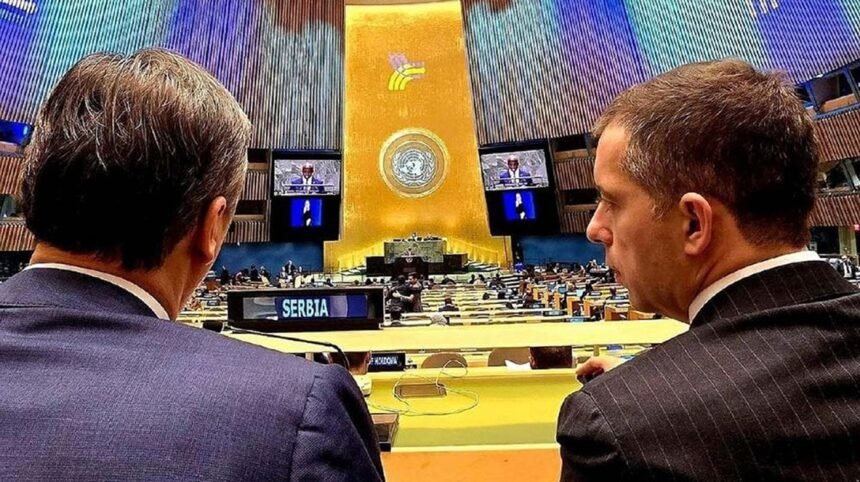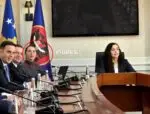Since the beginning of the year, Kosovo has quietly strengthened its international standing, while Serbia’s leadership struggles to keep pace. Despite repeated claims by Serbian President Aleksandar Vučić that some countries would withdraw recognition of Kosovo’s independence, the opposite has happened: Kosovo has secured formal recognition from Kenya in March and most recently Syria, adding to its growing list of international supporters.
Meanwhile, Serbia’s diplomacy appears increasingly ineffective. Foreign Minister Marko Đurić, who attended a key summit in Riyadh at the very moment negotiations over Syria’s recognition were taking place, remained publicly silent, leaving Serbia to scramble for influence in a rapidly shifting regional landscape. Vučić, for his part, blamed Turkey for Syrian recognition and promised “surprises” in the coming days—yet so far, no concrete results have emerged.
Analysts say this exposes the widening gap between Kosovo’s strategic diplomatic progress and Serbia’s failures. Vuk Vuksanović, senior researcher at the Belgrade Center for Security Policy, notes that Turkey’s influence has been decisive: over the past decade, Ankara has consistently supported Kosovo’s independence through diplomatic campaigns, particularly in Africa. “Several African countries, where Turkey has economic influence, have recognized Kosovo over the past year, underscoring Serbia’s inability to block these moves,” he said.
The recognition by Syria, according to Dragoslav Rašeta from the New Third Way, was predictable. Syria’s new leadership under President El Shara is pursuing closer ties with the West, seeking relief from decades of isolation under Assad’s regime. The mediating role of Saudi Arabia and Germany was crucial, highlighting how Serbia’s outdated alliances, including its past support for Assad, left it sidelined in critical negotiations.
Kosovo’s gains contrast sharply with Serbia’s setbacks. The country’s foreign policy now faces criticism for lack of initiative, poor timing, and failure to respond effectively to global diplomatic developments. Even as Kosovo quietly secures recognition and strengthens its international position, Serbian officials are left making empty promises and blaming external actors.
As Vuksanović points out, Serbia’s current political crises make it vulnerable to distraction campaigns, with Kosovo used as a political talking point rather than a focus of concrete action. Kosovo, meanwhile, continues to advance its diplomatic agenda, demonstrating both strategic foresight and results-oriented diplomacy.
The scoreboard is clear: Kosovo leads 2:0 in diplomatic achievements since the start of the year, while Serbia remains on the defensive, struggling to turn rhetoric into reality.







